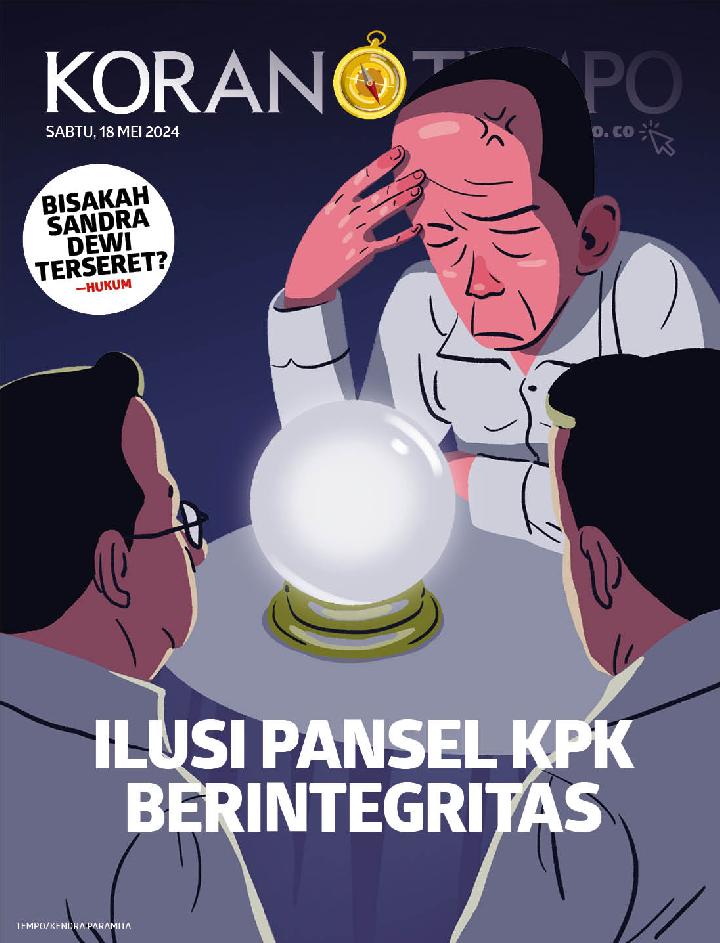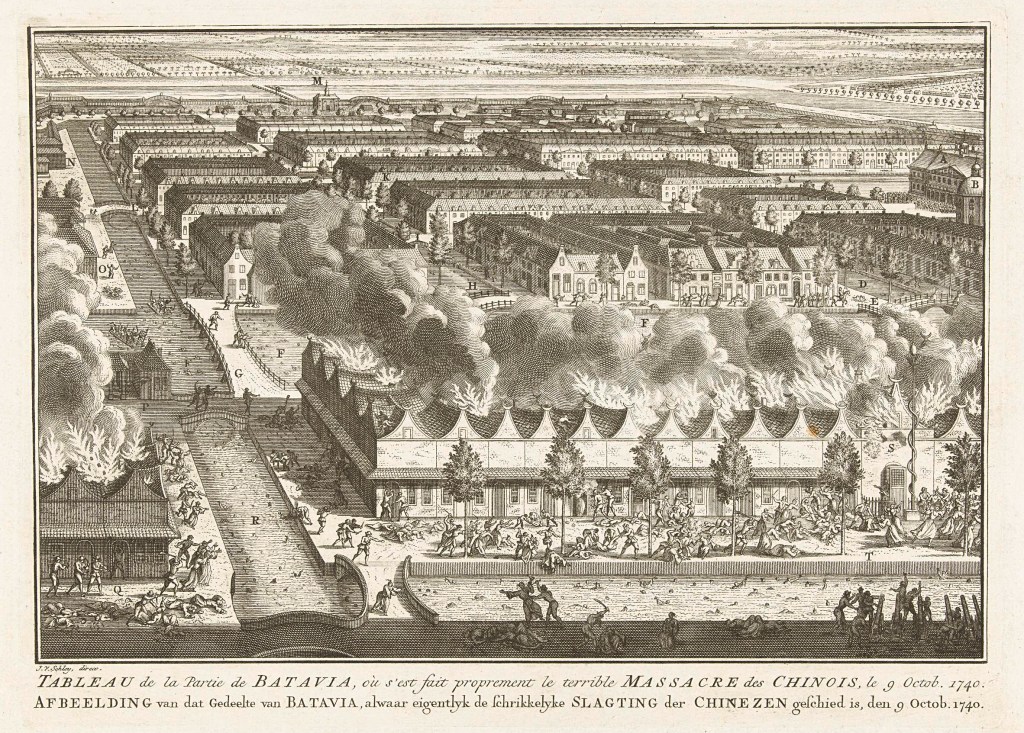Fatalities, Work Accidents, Union Suppression and Worker Criminalization: The Fate of Indonesian and Chinese Workers at the PT GNI Nickel Smelter #2
By Permata Adinda and Muammar Fikrie for Project Multatuli, May 26, 2023
Strike Action
Workers commonly refer to the main gate of PT Gunbuster Nickel Industry (PT GNI) as Gate IV. In front of this gate, the National Workers Union held a strike until 5:00 p.m. on January 14, 2023.
Not only were union members involved, but the action also attracted non-unionized workers. Even though the official strike ended, some workers on the night shift continued protesting into the evening.
The National Workers Union presented eight demands:
- The company must implement occupational safety and health procedures that comply with the current law.
- The company must provide complete Personal Protective Equipment (PPE) to workers in accord with the standard requirements for their job types or work risks at the workplace.
- The company must immediately establish company regulations.
- Stop unexplained wage deductions.
- Stop the use of Fixed-Term Employment Agreements (PKWT) for permanent positions.
- The company must rehire employees (National Workers Union members) whose contracts were terminated as a result of previous strikes.
- The company must install air circulation systems in every warehouse or smelter to prevent the buildup of dust.
- The company must clarify the rights granted to the families of the deceased workers, Mr. I Made Defri Hari Jonathan and Mr. Nirwana Selle, in line with current applicable laws and regulations.

The eighth demand was a reference to workers named Mr. I Made Defri Hari Jonathan and Mr. Nirwana Selle. These employees were trapped in a hoist crane during an explosion in one of the smelter furnaces at the end of December 2022. Nirwana Selle was live on TikTok when the accident claimed his life, with the video going viral on social media.
According to Mr. Amirullah, the Chair of the National Workers Union at PT GNI, since the deaths of the two workers, labor protests have intensified, and the strike on January 14 was part of a series of labor protests held since 2022, especially from the smelter and dump truck divisions, demanding improvements in working conditions and wages. Sometimes these protests were organized by the National Workers Union and sometimes they are spontaneously initiated by fellow workers.
“After Nirwana’s death,” Amirullah added, “our friends asked when the union would take action.”
Mr. Minggu Bulu, a union organizer at PT GNI and the coordinator of the action at that time, said his speech revolved around the eight demands. “I explained that safety should be our priority at work. Workers shouldn’t just work without taking care.”
After the strike ended, a worker informed union officials that two of their fellow workers had been detained at the North Morowali police station. They prepared to go to the police station while they waited for the rain to stop. They arrived at the police station at 8:00 p.m.
Around 11:00 p.m., they left the police station and went home.
However, according to Amirullah, “I received information that there was chaos in the grounds of PT GNI.”
Minggu Bulu wasn’t sure what happened inside the area while he was giving a speech in front of Gate IV. But he heard that the situation inside the plant grounds was “heating up.”
“As for what happened inside the company grounds, we don’t really know. But fellow workers said that Chinese workers attacked Indonesian workers inside the smelter. Some workers wanted to join the strike, but they were stopped,” Minggu Bulu said.
On January 14, Jumardin almost didn’t go to work. His mother knew there was a strike in the morning. She advised her son to skip work at night.
However, around 10:00 p.m., Jumardin’s coworkers called him. There were rumors that a number of Chinese workers were “attacking” Indonesian workers who were striking.
They asked Jumardin to go to work and not stand on the sidelines. Umar’s position in his division was deputy supervisor while his supervisor was on leave in his hometown. They needed Umar to be present as the responsible party.
“Why would you be at home? You’re the deputy supervisor,” Yulan related what Umar’s coworkers said to him.
Umar left for PT GNI at 10:00 p.m. When he arrived at Gate IV, his motorcycle was not allowed to enter. He parked his motorcycle at Gate IV and entered the premises.
“They had not even locked the handlebars of the motorcycle. It was lying on the road,” Yulan said.
Conflict erupted
Conflict erupted at 11:00 p.m. At 1:00 a.m., Umar left for Gate IV. He was apprehended by the police along with 71 other individuals. Another source claimed that more than 80 workers were arrested.
“When questioned by investigator, Umar said he only threw stones at Chinese workers. He threw stones once or twice,” Yulan recounted. “They’re shy. Quiet. Basically they only speak when they’re spoken to. If not, they’ll say nothing.”
A video showed a group of workers walking inside the plant grounds, shouting, “Expel the Chinese. Expel the Chinese!”
This racial anger was allegedly triggered by an attack by Chinese workers earlier in the day when Indonesian workers were on strike. Chinese workers were armed with iron pipes. They approached and attacked local workers. There were also vehicles damaged and set on fire, which led to stone-throwing before security forces intervened.
Chinese workers tasked to stop strike
According to a statement by China Labor Watch released on January 18, the management of PT GNI tasked Chinese workers with stopping the protest. “In response to the strike, PT GNI management used Chinese workers to end the strike, blockade the factory building, and protect company property,” wrote the New York-based labor monitoring organization.
“Instead of calming the situation, PT GNI incited Chinese workers against Indonesian workers, creating a narrative of ‘us’ Chinese vs. ‘them’ Indonesians. Many Chinese workers are worried about becoming victims of anti-China sentiment in Indonesia. Some workers were deployed to the front lines and were provided with helmets and iron pipes by management to defend themselves and the company.”

Apart from the language barrier, Chinese workers did not grasp the demands of Indonesian workers. According to conversations which China Labor Watch had with Chinese workers at PT GNI, they became aware that the union’s demands were also relevant to their working conditions, especially regarding workplace safety.
However, initially Chinese workers did not understand this. Instead, many viewed the demonstration as solely about wage increases among Indonesian workers, stated China Labor Watch.
Chinese workers also had reasons to support the protests at that time. China Labor Watch reported that many Chinese workers were victims of malpractice by PT GNI, including wage arrears and deductions, arbitrary wage cuts, opaque recruitment practices, long overtime hours, physical abuse, sexual harassment, passport confiscation, and restrictions on the movement of Chinese workers.
Two deaths
The police stated that the clash on the Saturday night resulted in two deaths, one local worker and one Chinese worker. However, apart from the police statement, there isn’t much certainty about the cause of the two deaths. This information came from the Head of Public Relations at the Central Sulawesi provincial police headquarters at that time, Police Superintendent Didik Supranoto. (Didik has since been transferred and replaced by Superintendent Djoko Wienarto. Didik later corrected his statement, which initially mentioned three fatalities; two local workers and one Chinese worker.)
The National Workers Union (SPN) could not confirm the identities of the two workers who died during the clash. SPN has asked the police to disclose the identities of the deceased and the causes of death. However, the police have not responded.
After the melee incident, the main demands of the PT GNI workers, including workplace safety, disappeared altogether. In the mass media, the dominant narrative presented was around the so-called horizontal conflict, packaged in racial tensions between Indonesian and Chinese workers. (Continued..)
This article is based on https://projectmultatuli.org/kematian-kecelakaan-kerja-pemberangusan-serikat-kriminalisasi-nasib-pekerja-indonesia-dan-tiongkok-di-industri-smelter-nikel-pt-gni/.
Featured image credit: Tropical Rainforest in Indonesia By Rhett Ayers Butler https://www.butlernature.com/2022/01/04/whats-the-outlook-for-tropical-rainforests-in-2022/
In related news:
- Profile of PT GNI in North Morowali where 2 workers died during clashes
- https://www.kompas.com/tag/bentrok-pekerja?page=2
- https://www.tempo.co/search?q=GNI
- https://bisnis.tempo.co/read/1814128/perusahaan-smelter-nikel-dari-cina-ini-profil-pt-tiss-morowali-dan-pt-gni
- https://nasional.tempo.co/read/1815466/dua-kebakaran-tungku-smelter-dalam-sepekan-di-morowali-kronologi-kejadian-di-pt-itss-dan-pt-gni
- https://go.kompas.com/read/2023/01/17/093724774/riot-at-chinese-funded-nickel-plant-in-indonesia-kills-two
- https://bisnis.tempo.co/read/1460228/kembangkan-smelter-nikel-antam-gandeng-alchemist-metal-gunbuster-nickel and https://storiesfromindonesia.com/2024/02/08/elections-china-downstream-the-tentacles-of-indonesias-nickel-oligarchy-by-project-multatuli-part-3/
- https://www.thejakartapost.com/business/2021/12/29/china-backed-3b-nickel-smelter-starts-up-in-morowali.html
- https://news.metal.com/newscontent/101726334/the-third-phase-of-delong-industrial-park-in-indonesia-has-been-signed
- https://thediplomat.com/2023/01/chinese-and-indonesian-workers-clash-at-indonesian-nickel-plant/
- https://www.cnbcindonesia.com/news/20221229122014-4-401135/pabrik-nikel-di-morowali-kebakaran-pemiliknya-asal-china
- https://money.kompas.com/read/2023/10/02/153100126/ciptakan-lingkungan-kerja-harmonis-pt-gunbuster-nickel-industry-gelar-seminar?page=all
- https://www.reuters.com/article/idUSKBN2J60NW/






Leave a Reply